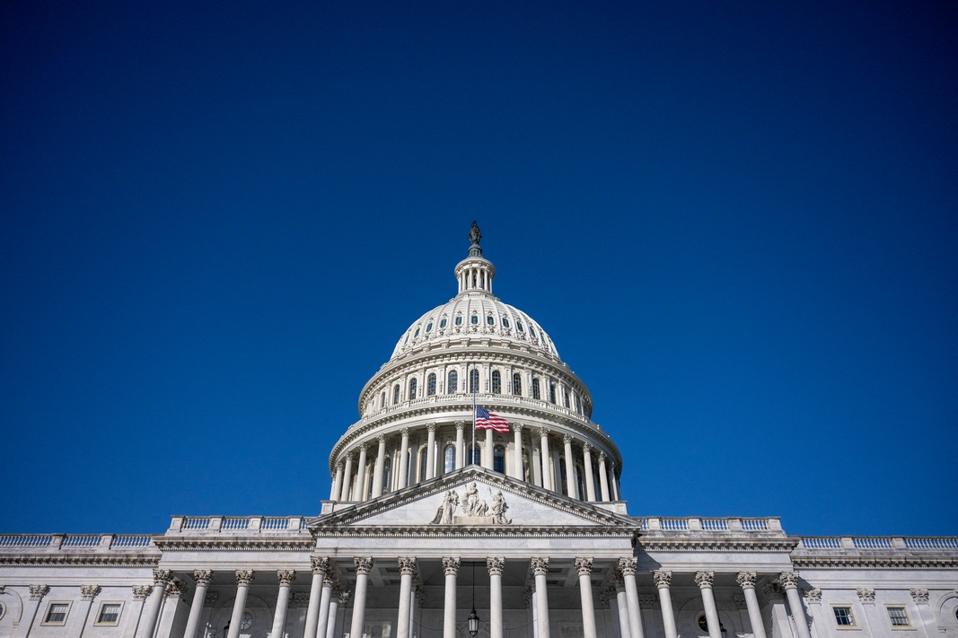One of the signature accomplishments of the first Trump administration was the passage of the 2017 Tax Cuts and Jobs Act (TCJA), a pro-growth reform that helped fuel economic expansion. But as key provisions of the law begin to expire this year, Congress faces a major test––will it preserve the competitive edge TCJA helped create or undo that progress through backdoor tax increases?
Lawmakers are considering a wide range of proposals to offset the projected $4.5 trillion cost of extending the 2017 tax cuts, including a proposal to cap or eliminate the corporate state and local tax deduction—commonly known as C-SALT.
Though it might sound like an obscure technical change, C-SALT repeal would amount to a stealth tax hike on millions of American companies. Gutting C-SALT would effectively raise federal taxes on companies already paying their fair share at the state and local levels. It would also jeopardize jobs, discourage investment, and reduce energy production.
Let’s be clear––some level of tax reform may be necessary to ensure long-term fiscal stability and extend TCJA’s benefits. But eliminating C-SALT without lowering the corporate tax rate in return is simply a tax hike by another name. That’s the wrong direction for our economy and particularly damaging for capital-intensive industries like oil and gas.
C-SALT allows companies to deduct the taxes they pay to state and local governments—including income, property, sales, and excise taxes—from their federal taxable income. This avoids the unfair scenario of companies being taxed twice on the same dollar. If Congress removes or limits this deduction, the federal tax burden on businesses would increase substantially.
The nonpartisan Tax Foundation has warned that such a move would act as a de facto corporate tax hike, reducing economic output and curtailing investment. Like adding weight to a race car, higher taxes make it harder for businesses to accelerate growth. That’s not just bad economics—it’s self-defeating policy.
The energy sector would be hit especially hard. Oil and gas producers operate in high-tax states and pay a unique set of levies, including severance taxes on resource extraction. These are not costs they can easily avoid or shift elsewhere—operations are tied to the geology of shale plays and basins, not to favorable tax environments.
In 2021 alone, the oil and natural gas industry paid nearly $209 billion in direct state and local taxes. Severance taxes alone accounted for billions––$8.5 billion in Texas, $3.1 billion in North Dakota, $1.9 billion in New Mexico. These revenues help fund schools, roads, and public services in the very communities where these companies operate. Penalizing that success through federal tax policy would discourage new investment in precisely the regions that depend on it most.
Unlike software startups, energy projects require vast capital outlays and long-term planning. Raising the tax burden on these projects would reduce the incentive to develop new infrastructure or expand production. That means fewer jobs, slower growth, and less energy security for the United States.
One of the Trump administration’s most successful policies is a commitment to U.S. energy dominance, which means making it easier—not harder—for companies to produce American energy, create American jobs, and lower energy costs for American consumers. Undoing C-SALT would take us in the opposite direction.
This isn’t just a matter of economics. It’s about priorities. Do we want a tax code that encourages domestic investment or one that drives capital overseas? Do we want to reward companies that fuel our economy or punish them for operating in energy-rich states with high local tax burdens? Do we want to support the jobs and communities that depend on the energy industry—or jeopardize them in pursuit of short-term revenue?
If Congress is serious about strengthening the economy, it should reject efforts to eliminate C-SALT unless those changes are coupled with a lower corporate tax rate. That’s the only way to ensure tax policy remains pro-growth, pro-job, and pro-competitiveness. Anything less is just a stealth tax hike—and one that would fall hardest on the very industries we need to lead our economic recovery.
In this moment of economic uncertainty, we should be doing everything possible to fuel growth—not throwing sand in the gears of American enterprise. That means extending the core provisions of the TCJA, resisting tax increases that would stifle investment, and recommitting to policies that make America the best place in the world to do business.

